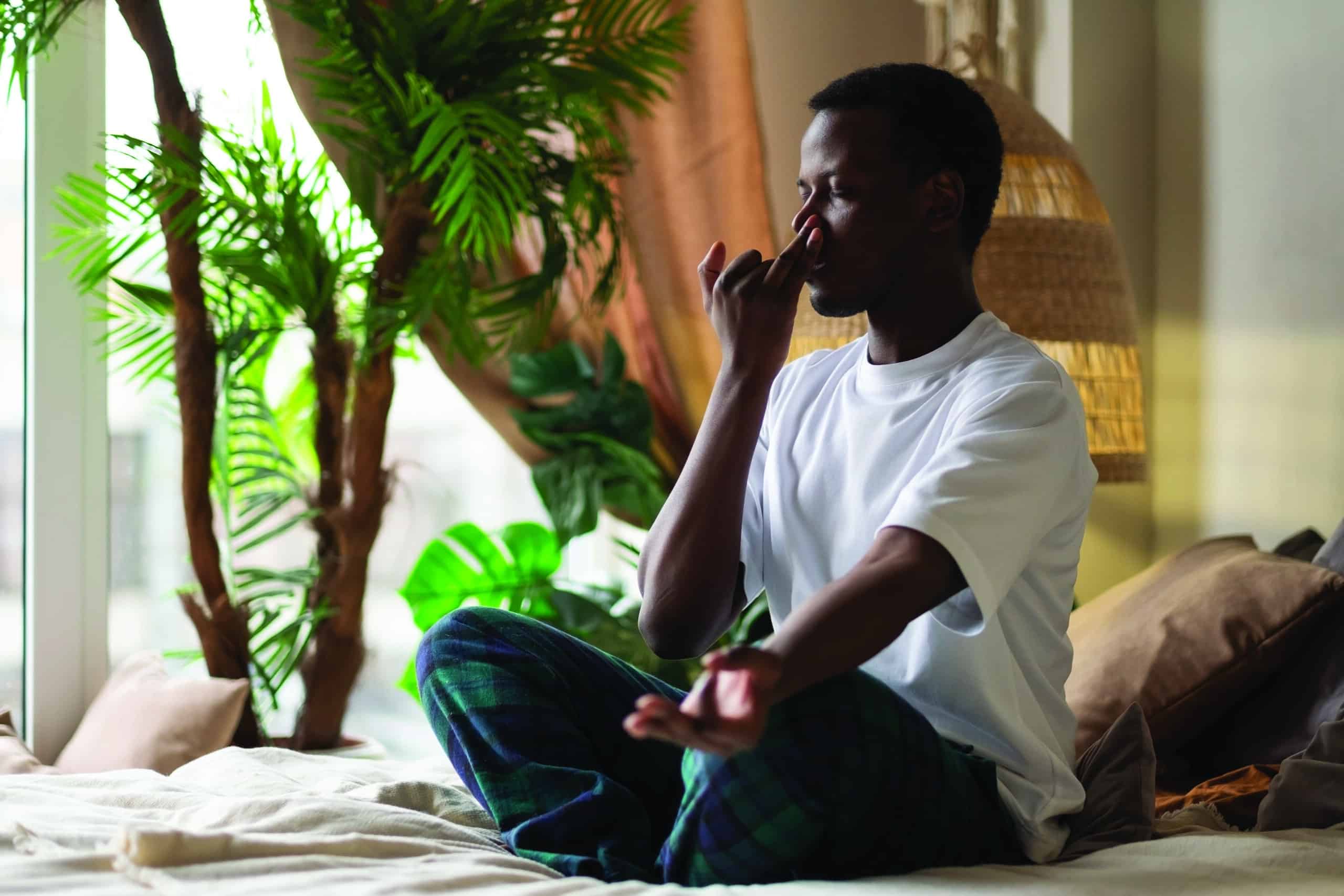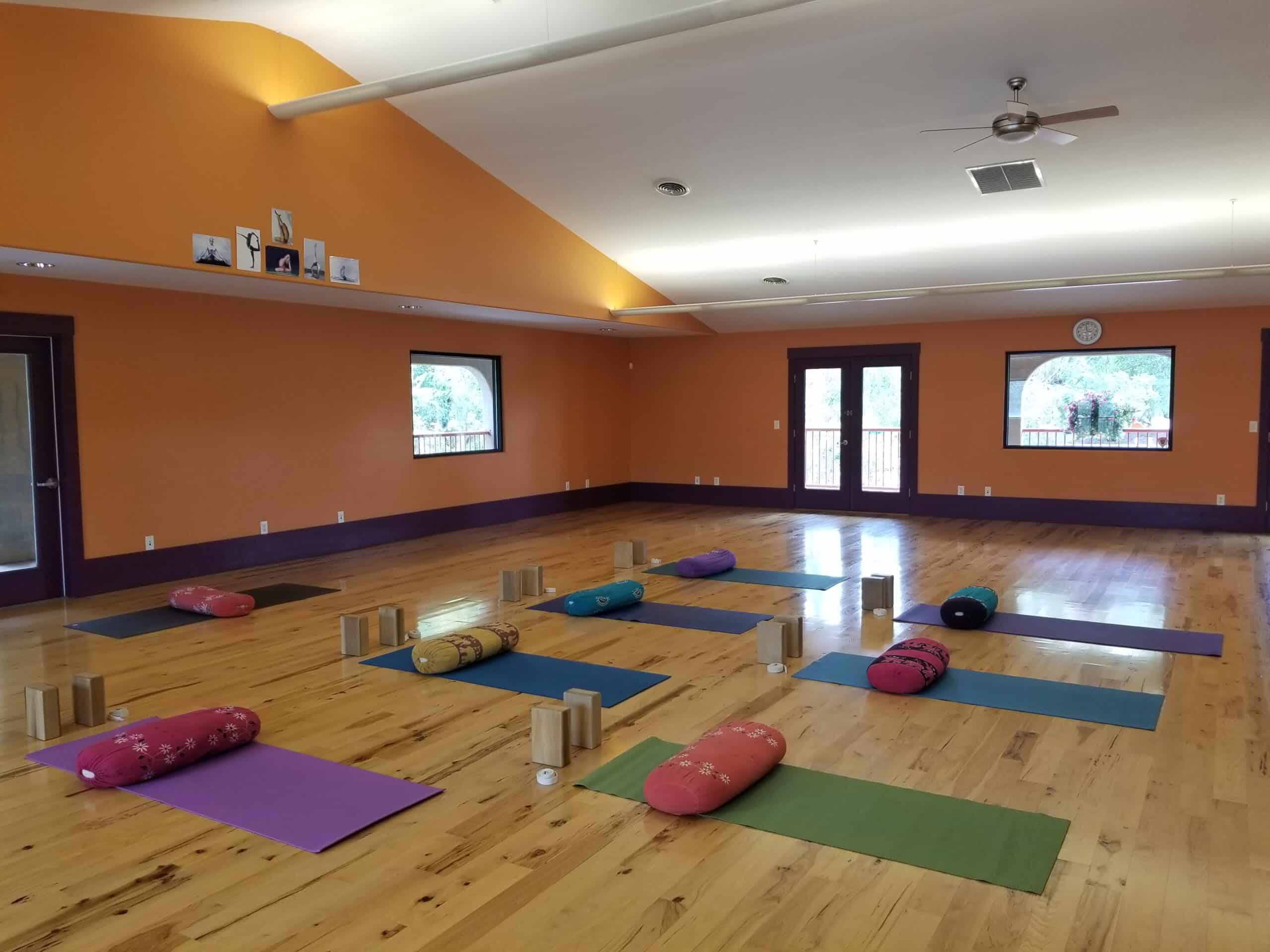Biohacking Better Health with Pranayama : Deep Breathing to “Hack” Your Nervous System | By Julia Clarke
“ Begin to deepen your breath.”
How many times have you heard that phrase? If you’re a regular yoga practitioner, chances are you hear it all the time, and it probably helps you feel calmer. But, why is deepening your breath so effective?
In 2019, I found myself at Earth Yoga in Boulder for a three-day workshop with Viniyoga founder Gary Kraftsow, during which our focus was largely on exactly this topic.
“One of the great insights of the ancient yogis is that, through breath regulation, we can influence sympathetic/parasympathetic regulation,” explains Kraftsow, as we gradually and progressively lengthen our breath. On Friday evening, we started by inhaling for four seconds and exhaling for four seconds. By Sunday afternoon, we worked our way up to taking just two breaths per minute, thanks to slowing down our inhales and exhales, and adding pauses at the end of each, known as retention and suspension.
Now, this might sound extremely stressful to you, but with the right training and preparation, it can be profoundly relaxing, and science is getting closer to understanding why.
Pranayama, as these breathing techniques are broadly known in yoga, has retained an air of mystery even while millions across the globe practice it on yoga mats. Krafstow explains that while meditation practices span many cultures and traditions and have been subject to a fair amount of research, pranayama is exclusive to the yoga tradition and mostly unexplored scientifically. Though countless pranayama
exist, details on their function and benefits in ancient texts are scant. But one thing that the texts seem to agree on is that, through your breath, you can exert power over your mind.
“He who binds the breath, binds the mind. He who binds the mind, binds the breath,” writes Svātmārāma in the 15th century text the Hatha Yoga Pradipika.
More recently, studies suggest that the link between a deeper breath and managing stress may come down to the Vagus Nerve. Meaning “wandering” in Latin, the Vagus Nerve is a term given to a large network of nerves that transmit signals between your brain and your gut,
heart, immune system and other organs.
Because of its extensive nature, the functions of the Vagus Nerve are astonishingly wide-ranging, and it seems to exert influence over all types of unconscious mechanisms, such as immune response, digestion, heart rate and, perhaps most tellingly, mood control. The Vagus Nerve is the primary contributor to your parasympathetic nervous system, which controls your relaxation response, and preliminary studies suggest that poor Vagus Nerve functioning may contribute to depression and inability to cope with stress.
In 2019, researchers in Belgium had participants engage in two different types of breathing techniques. One involved inhaling and exhaling at an equal ratio, while the other made their exhales longer than their inhales. A third control group watched an emotionally neutral film. The experiment found that both groups engaged in breathing techniques saw increased Vagal Nerve Activity (VNA). Increased VNA has been
associated with better stress management, positive emotions and even better physical health. This study had the participants engage in a decision-making task following their assignment and concluded that those subjects with improved VNA exhibited better decision-making skills than the control group.
If such studies prove correct, deeper breathing can have major, exciting implications for your physical and mental health, including assisting your ability to combat stress. As current science understands it then, deep breathing may prove for some to be an effective “biohack” — a popular term for DIY practices that promote health and prevent disease. Though it’s not the only way to improve VNA (cold showers, probiotics and massage are also implicated), it’s certainly one of the cheapest and most time-effective.
Pranayama, when practiced responsibly, is a free and accessible technique that could pay major dividends for your mind, nervous system and physical body. If you’re looking for a simple, safe way to effectively “hack” your Vagus Nerve and increase your sense of well-being, try
pausing today for two to three minutes of balanced breath.
Originally published in Winter + Spring 2023-24 issue of Well.
The FreeSip from Owala keeps your water cold for up to 24 hours, allows you to drink two [...]

Subscribe to Our Tribe
Stay up to date with Y+L News, Events and special announcements.










